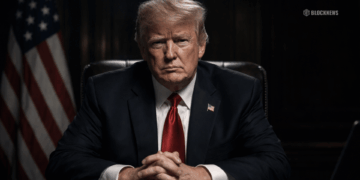• CZ warns investors against buying a fan-made “CZ STATUE” memecoin, calling it exploitative.
• The token crashed 86% after peaking at a $5.1M market cap, with insider activity suspected.
• The incident underscores growing risks in celebrity-themed memecoins and speculative hype trading.
Binance founder Changpeng “CZ” Zhao has urged investors not to buy a new memecoin launched in his name after it crashed 86% shortly after release. The token, known as CZ STATUE, was created following the viral appearance of a fan-made golden statue of Zhao that circulated across social media.

In a post on X, CZ thanked supporters but condemned the coin’s creators, warning that it was likely an attempt to exploit his name for profit. “While I appreciate the gesture,” Zhao said, “the fact that there is a meme coin associated with this means the creator probably just wanted to make a quick buck off an interaction from me. Don’t buy the meme.”
The Token’s Rapid Collapse
According to data from Nansen, the CZ STATUE token briefly reached a $5.1 million market cap before plummeting 86% within hours. Analysts also flagged troubling token distribution patterns, with more than 15% of the supply concentrated in a single new wallet—raising concerns of insider activity and potential manipulation.
The crash mirrors previous speculative frenzies across the BNB memecoin ecosystem, where traders have made (and lost) fortunes overnight. Earlier this month, a trader reportedly turned $3,000 into $2 million after CZ’s unrelated X post sent another token soaring—but the hype cycle quickly reversed following market-wide liquidations.

The Bigger Picture: Memecoin Mania and Risk
The CZ STATUE meltdown is the latest example of how memecoin speculation continues to outpace fundamentals in the crypto market. While some traders treat these assets as harmless fun, others see them as increasingly predatory, exploiting social media attention and celebrity likenesses to fuel short-lived pumps.
Zhao’s direct warning marks a growing concern among major industry figures that the memecoin craze—especially when tied to real people—can erode trust and attract regulatory scrutiny.














